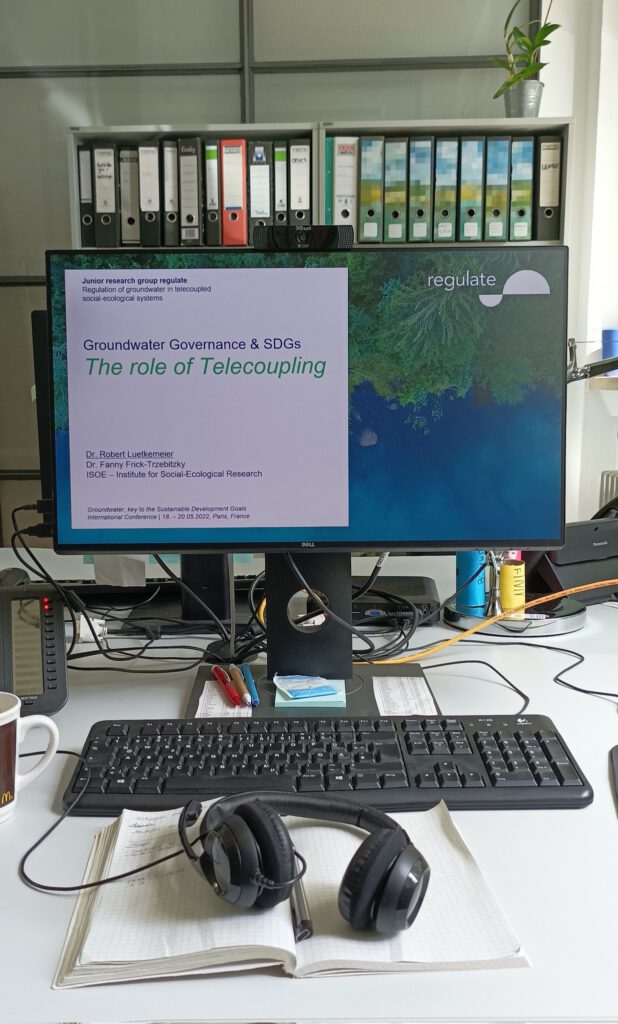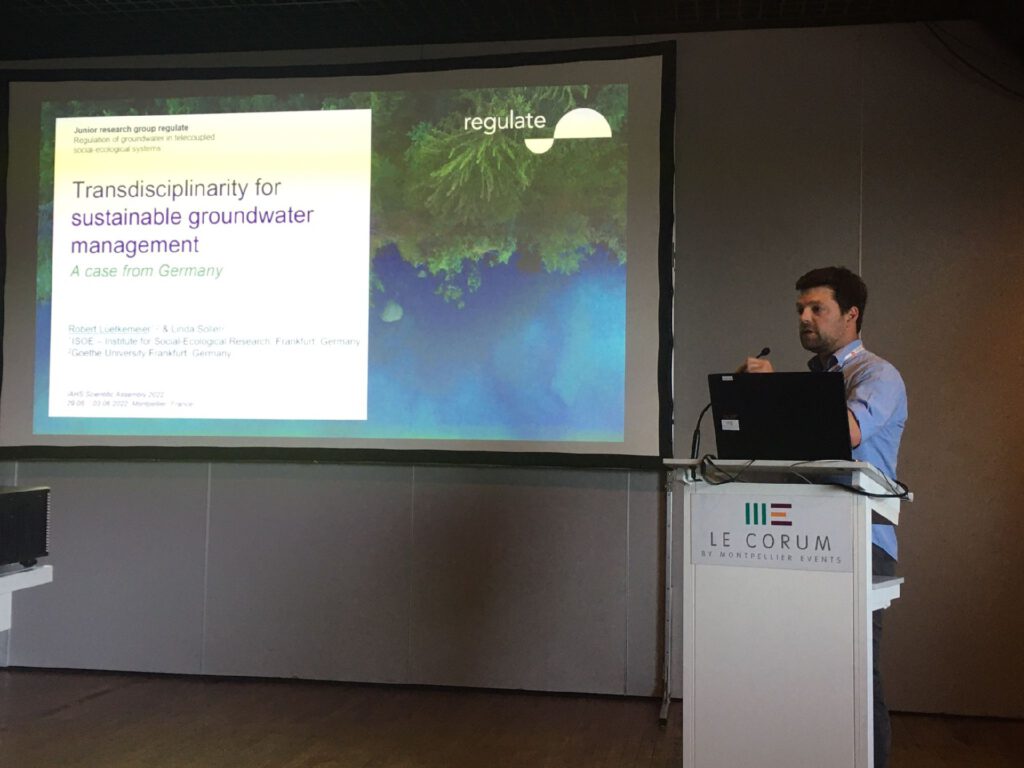During the past few weeks, regulate researchers were speaking at two international conferences.

Robert gave a talk on ‘the role of telecoupling’ at the international conference “Groundwater, key to the Sustainable Development Goals” in Paris (conference details, click here). Robert presented some ideas of how the telecoupling framework could help uncover the various way in which water is contributing to the SDGs. He specifically looked into long-distance water networks and virtual water trades.

Two weeks later, Robert and Linda were attending the 11th Scientific Assembly of the International Association of Hydrological Sciences (IAHS) in Montpellier (France) (conference details click here). Robert presented our inter- and transdisciplinary work in the case-study region of Mansfeld-Südharz, Saxony-Anhalt, Germany. Nitrate and uranium contamination of groundwater as well as drought-induced low groundwater levels created public pressure to switch to a long-distance water supply network. Thus, a complex web of social-ecological interactions affects local and remote (ground)water resources. These processes can, however, not be explained by hydrology alone – they require a socio-hydrology approach. Here, we investigate the groundwater situation from an interdisciplinary perspective to better understand both societal and environmental phenomena locally and in remote places using the telecoupling framework. In collaboration with stakeholders, we apply a methodologically guided transdisciplinary process of problem framing, interdisciplinary collaboration and knowledge integration. Find a summary of the talk here.
